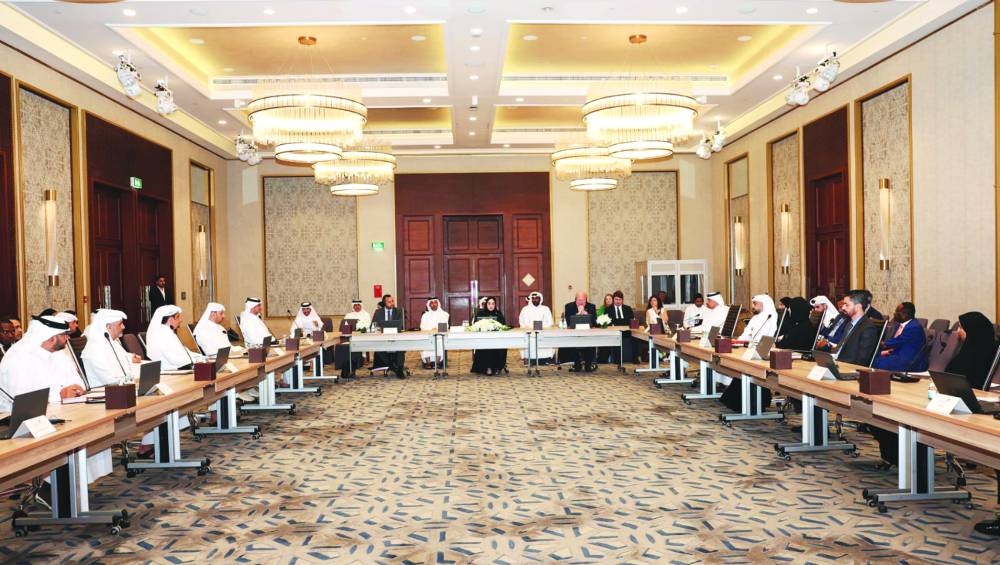In co-operation with the International Transport Workers’ Federation (ITF), the Ministry of Labour held a roundtable meeting to discuss current and proposed future national laws, relevant international standards, and mechanisms for applying the Labour Law in the transport sector.
The meeting shed light on the best ways to deal with challenges facing transport sector workers in light of regional and international developments and seek solutions that strengthen the balance between workers’ rights and the labour market’s needs.
It was also held to address the issues and challenges facing workers in the transport sector in Qatar and develop a comprehensive vision for improving transport practices and occupational safety and health in the country.
The roundtable further focused on the shared vision of developing a comprehensive implementation plan to provide a safe, fair, and sustainable environment for transport sector workers in Qatar, built on the principles of transparency, co-operation, and genuine partnership between the government, employers, workers, and their representatives. It also stressed aligning local recruitment practices with international standards and promoting regular stakeholder engagement in an inclusive dialogue involving all sector parties.
Throughout the working sessions, participants discussed key topics, including fair recruitment and identifying challenges related to worker retention and improving recruitment practices, ways to enhance occupational safety and health, providing training and resources to ensure worker safety, developing a preventive work environment to reduce accidents, and strengthening worker participation through joint committees and grievance mechanisms, while supporting the sustainability of efforts to improve the work environment, with the goal of entrenching social justice and workers’ rights in Qatar.
The sessions also addressed the joint co-operation programme between Qatar and the ILO, which aims to support labour governance and align local policies with Qatar’s international commitments. It focuses on building an integrated system that promotes social justice and ensures the continuity of legislative development, while shaping a shared understanding of the program’s history, provisions, and future objectives.
The roundtable concluded Wednesday by identifying the challenges, opportunities, and shared commitments among all stakeholders concerned with workers in the transport sector in Qatar. It also resulted in an agreement on a roadmap for future co-operation between the Ministry of Labour, the relevant national entities, the ITF, the International Labour Organisation, labour organisations, and civil society organisations.
A high-level delegation from the ITF participated in the roundtable headed by ITF general secretary and the Head of the ILO Office in Doha, along with representatives from the Ministry of Transport, the ILO, civil society organisations, a host of workers’ representatives, employers, and transport companies operating in Qatar.
In her opening remarks, HE Undersecretary of the Ministry of Labour, Sheikha Najwa bint Abdulrahman al-Thani, emphasised that the roundtable initiative builds upon the strong relationship between Qatar and the ILO, reaffirming Qatar’s firm commitment to fostering a working environment based on justice, sustainability, and safety.
She noted that the transport sector is undergoing rapid development, requiring integrated efforts to ensure adaptability to change and compliance with national laws and international standards relating to workers’ rights and duties. She reaffirmed Qatar’s commitment to promote and apply these values through practical policies and practices that enhance the working experience and meet the aspirations of all stakeholders.
HE the Undersecretary of the Ministry of Labour added that launching this in-depth dialogue on implementing the joint co-operation programme between Qatar and the ILO at the sectoral level is a practical step toward consolidating international best practices, enhancing worker participation mechanisms, and establishing the principle of workers’ voice in developing the work environment.


